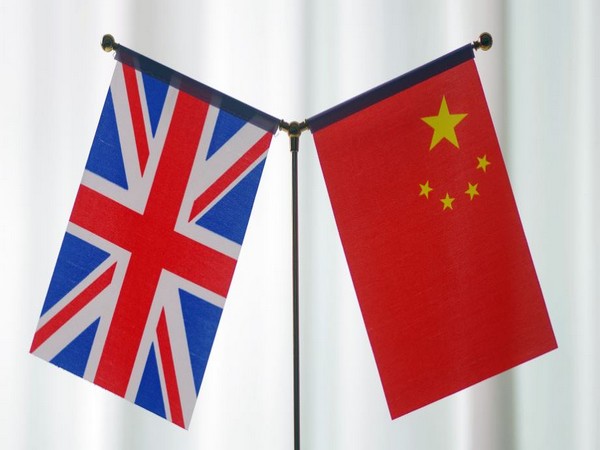BEIJING, Jun 18 : China on Tuesday urged US President Joe Biden not to sign the Tibet policy bill, warning of “resolute measures”, as it expressed “strong concern” over the visit of a high-level US Congress delegation to Dharamshala to meet the Dalai Lama.
A bipartisan US congressional delegation, led by House Foreign Affairs Committee Chairman Michael McCaulis, is visiting India to strengthen bilateral ties and to meet the 88-year-old Tibetan spiritual leader.
Former US House Speaker Nancy Pelosi is part of the delegation that reached Dharamsala, in the Indian state of Himachal Pradesh, on Tuesday. Dharamsala is the seat of power for Tibet’s government in exile since the spiritual leader stepped into India six decades ago.
The US House of Representatives voted 391-26 last Wednesday to approve the Promoting and Resolution to the Tibet-China Dispute Act, which was passed by the Senate, a media report said, adding, that the bill would direct funds to counter what it calls “disinformation” from Beijing about Tibet’s history, people and institutions.
Chinese Foreign Ministry spokesperson, Lin Jian, while reacting to the US delegation visit, told a media briefing here: “The 14th Dalai Lama is not a pure religious figure, but a political exile engaged in anti-China separatist activities under the cloak of religion.”
“We are gravely concerned over the relevant reports and urge the US side to fully recognise the anti-China separatist nature of the Dalai group, honour the commitments the US has made to China on issues related to Xizang, have no contact with the Dalai group in any form, and stop sending the wrong signal to the world”, he said.
China officially refers to Tibet as Xizang.
Lin also urged Biden not to sign the bipartisan Tibet policy bill adopted by both the US Senate and the House of Representatives. The bill awaits Biden’s signature to make it into a law, according to media reports in Washington.
The bill seeks to counter China’s narrative about its control over Tibet and promote dialogue between the Chinese government and the Dalai Lama.
Claiming that Tibet has been part of China since ancient times, Lin said it always remained China’s territory and “Tibet related affairs are purely China’s internal affairs that brook no external interference.”
“No one and no force should ever attempt to destabilise Tibet to contain and suppress China. Such attempts will never succeed,” he said.
“We urge the US side to adhere to its commitments of recognising Xizang as part of China and not supporting ‘Xizang independence.’ The US must not sign the bill into law. China will take resolute measures to firmly defend its sovereignty, security and development interests,” he said without elaborating.
Lin said Tibet now enjoys a tranquil and harmonious society, positive economic growth, has robust safeguards on people’s welfare and has opened up new grounds for long-term stability and high-quality development.
Detailing the Tibet Bill, the Hong Kong-based South China Morning Post reported earlier that it refutes the Chinese government’s claim that Tibet has been part of China since ancient times, and would make it US policy that the dispute over Tibet’s status is unresolved.
It would also make it US policy that “Tibet” refers not only to the Tibet autonomous region as defined by the Chinese government but also to Tibetan areas of Gansu, Qinghai, Sichuan and Yunnan provinces, the Post reported.
China in April this year said it would talk only with the representatives of the Dalai Lama and not the officials of the Tibetan government in exile based in India.
At the same time, China ruled out dialogue on the Dalai Lama’s long-pending demand for autonomy for his remote Himalayan homeland.
In its talks with China between 2002 and 2010, the Tibetan side pitched genuine autonomy for the Tibetan people in line with the middle-way policy as proposed by the Dalai Lama, who has said he does not seek political independence for Tibet but seeks autonomy for all Tibetan areas which included Gansu, Qinghai, Sichuan and Yunnan provinces besides the current official Tibet Autonomous Region, a truncated version of Tibet before it was annexed by China.
After a failed anti-Chinese uprising in 1959, the 14th Dalai Lama fled Tibet and came to India where he set up the government-in-exile.
Relations between the two sides strained further due to protests against China in Tibetan areas in 2008. (PTI)


